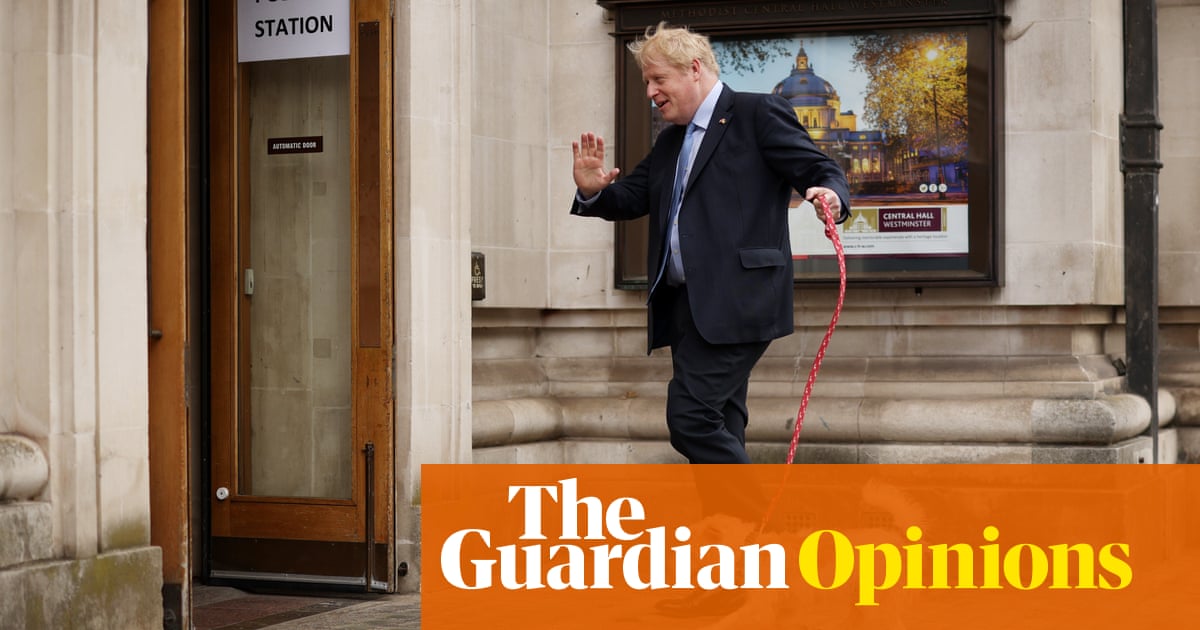
People in the party’s new seats are not all as old and badly off as stereotypes suggest
n the weeks since the election, the Westminster agenda has been focused on the politics and economics of place. That’s because of some very specific locales: the 50 seats across north Wales, the Midlands and the north that switched from Labour to the Conservatives. These seats, in what was once Labour’s “red wall”, and is now being described as a “blue wall”, put Boris Johnson’s government into office. And it is the desire to hold on to those seats that lies behind its programme of tackling Britain’s damaging geographic divides – what it calls “levelling up”.
But defining that programme means understanding those constituencies. Crucially, it means getting beyond stereotypes. Too often we hear these former Labour strongholds characterised as poor, left-behind towns that the young are leaving in droves, when the reality is far more complex.
The town part of the label is at least broadly true – these seats are indeed larger towns or smaller cities. More than two-thirds of residents across the 50 constituencies live in towns, compared to just under half of the population as a whole.
The Tories now face a dilemma: change, or lose their new voters
John Harris
John Harris
Read more
But these towns and cities are not the poorest parts of Britain. Yes, they are much poorer than traditional Conservative seats – with typical pay £44 a week lower. But that is really down to the wider north-south divide and higher pay across London and the south-east. If we focus on the regions that these seats sit within, typical earners actually take home £9 a week more on average than in Labour seats in the same areas.
Calling these places old is also wide of the mark. The average age of residents in these seats is 41 – just 0.7 years above the UK average. This is exactly why these are the new swing seats in Britain – they are middle-aged in a country that is becoming increasingly polarised by age. And the idea that these seats have seen a youth exodus is simply false: far fewer young people are leaving than in Labour seats, or other Conservative seats. Indeed, fewer people of any age are moving out, or for that matter moving in – either from other parts of the UK or abroad. As a result, their population growth since 2002 is half that of the rest of the country.
The relative economic performance of these seats also poses a challenge for this government – because while they haven’t historically done worse than the country as a whole, they have certainly been doing so since 2010. Northern regions have generally seen a smaller pay squeeze post-crisis than the south, but these seats have bucked that trend, with pay still down by 2%. They have also missed out on the largely city-based job boom since 2012 and are seeing slower growth in higher-paying jobs than elsewhere. House prices have grown at half the rate of the rest of the country – although this has brought some benefits, with home-ownership rates above the national average.
So while the Tories’ new seats aren’t poorer than the rest of the country, their relative economic decline explains the government’s “levelling up” agenda and focus on the specific challenges in those places, as well as its desire to close the broader north-south regional divide. Transport plans need to go well beyond the big intercity trains that make headlines to more local improvements, strengthening the economies of the blue wall directly. Investing in skills will reinforce such an approach.
Get Society Weekly: our newsletter for public service professionals
Read more
The government’s attention to its new seats is welcome, but while new road and rail links are needed, they will inevitably take time to arrive. In the meantime the “levelling up” agenda risks being taken backwards by the one big government reform that we know is definitely coming to the blue wall in this parliament – universal credit. Unintentionally the design of the new benefit system means there will be many more losers in the north than the south, something that is currently receiving no attention in government.
Of course, understanding the demographic and economic shifts taking place across these seats can only get you so far. It’s equally important to listen to what people want, and appreciate that different areas will have different priorities.
All governments need big, clear agendas to help them prioritise. “Levelling up” the new Tory seats, and Britain more generally, is a worthy aim, irrespective of whether it’s partly based on cold electoral logic. And the only way to do it is by starting with facts, not stereotypes.












